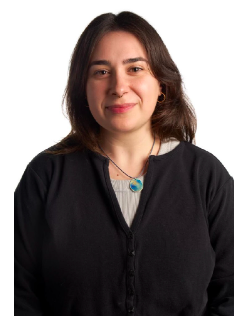After working at a private school in Poughkeepsie as a Camp Director, Isabella Staniscia makes
the move to a job in hotel reception after years of stress and problem solving.

I learned to be patient. I’m a lot more sure of myself because most things can be solved— and
sometimes, choices just need to be made. They’re not bad or good, they’re just a choice.
I’m a graduate student majoring in counseling at SUNY New Paltz, as well as a current front
desk receptionist at a hotel. Before I got the reception job, however, I worked for a private school
in Poughkeepsie. I had a number of duties, including running the camp this school ran every
summer. The camp, which had a focus on the arts, was open five days a week for children 4 to
10 years old. To keep things fun, there were different theme weeks, including water fun, forts
and fairy houses, and witchcraft and wizardry. Counselors and kids would dress up however they
wanted, according to the theme. For example, during witchcraft and wizardry week, kids would
come dressed up in cloaks, wigs, and hats, and then participate in activities such as making
potions or Quidditch matches.
As the camp director, I did all the backstage work; I came up with the themes each week,
registered campers, marketing, budgeting—the “not-so-fun” stuff. Since I was a camp counselor
for a long time beforehand, being the director is hard because you’re rarely dealing with the
kids—you’re dealing with the parents. And dealing with the parents is a thousand percent harder.
If there’s an incident that happens, say two campers get into an argument, it’s easy to separate
them and de-escalate the situation, especially since you’ve gotten to know them and their
personalities so well. However, when you tell the parents, they will say, “Well, why did this
happen? How did it get to that point?” And obviously, they were not there when it happened, so
they only hear what we say, or whatever their child tells them. So oftentimes, parents do tend to
exacerbate situations.
Being the director is hard because you’re rarely dealing with the kids—you’re dealing with the parents. And dealing with the parents is a thousand percent harder.
It’s similar to what I deal with at my new job as a front desk agent. There are no kids, but it is a
lot of de-escalating of situations, miscommunication, and solving problems— even when
problems have already been solved. The guest immediately becomes anxious, especially because
they’re paying for something. Whether it’s a camp or a hotel, they’re paying a lot—and that
comes with certain expectations. They don’t want anything to go wrong, and they, themselves,
do not want to be wrong. But at the end of the day, whether you are a camp director or front desk
agent, you know that you have the most knowledge. In both cases, it’s really about being
sympathetic towards the person on the other end, who also wants control of the situation. That
used to give me a lot of anxiety, but not anymore.
